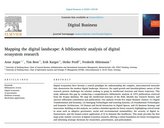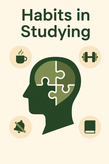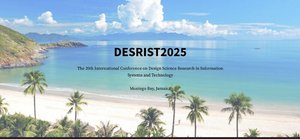Singleview
Wed, 09. Apr 2025 Korn, Falco
Excited to Share: Two Papers Accepted at DESRIST 2025!
We are pleased to announce that two of our research papers have been accepted at the 20th International Conference on Design Science Research in Information Systems and Technology (DESRIST 2025).
Paper 1: Anchoring Collaboration: Design Principles for Stakeholder Management in Ports
by Tim Brée, Frederik Ahlemann, Fabian Lohmar, Klaus Krumme, Jan-Hendrik Kamlage, Marius Rogall, and Erik Karger
Abstract: Stakeholder management (SHM) is a critical approach for organizations to identify, analyze, and engage stakeholders to align their diverse interests with strategic objectives. Ports, as complex and dynamic systems, play a crucial role in global trade, economic development, and environmental sustainability. Their operations involve diverse stakeholders, including government bodies, private enterprises, and local communities, each with varying and often conflicting interests. Effective SHM is essential to balance these interests and ensure sustainable port operations. However, existing SHM frameworks, primarily developed for generic organizational settings, often fail to address the unique characteristics of ports, such as decentralized decision-making, multifaceted stakeholder landscapes, and regulatory complexities. To bridge this gap, this study develops port-specific design principles for SHM based on a multiple case study of four ports with significant cargo and logistics functions. Using desk research and interviews with SHM professionals, six design principles were identified: decentralized decision-making, structured information exchange, sensitization and skill-building, stakeholder classification systems, integration of SHM with project management methodologies, and integration of the top management into the SHM. The proposed design principles provide a tailored framework to enhance stakeholder engagement and strategic alignment within the port sector.
Paper 2: From Stress to Success: Designing a Diagnosis and Intervention Platform for Knowledge Workers
by Falco Korn, Erik Karger, Frederik Ahlemann, and Alexandar Schkolski
Abstract: The increasing prevalence of mental illnesses, including stress-related disorders, has made workplace strain a growing concern, particularly for knowledge workers who face high cognitive demands, non-linear workflows and tight deadlines. The complex interplay between workplace conditions, self-management strategies, and individual health remains largely under-studied, especially in real-world settings, and help-seeking behavior to mitigate health and well-being challenges remains low. Although advances in digitalization facilitate the capture and analysis of workplace-specific contexts, they have not yet been fully leveraged in multimodal diagnosis and intervention systems for pattern recognition that may enable targeted interventions, leaving a gap for a comprehensive solution. To address this gap, we applied the Design Science Research approach to develop an architecture for a multimodal diagnosis and intervention platform. Using a mixed-methods study, we derived requirements from a comprehensive literature review, semi-structured interviews (n = 12), and a survey (n = 32) with knowledge workers. The derived design principles guided the development of a process-oriented architecture, which was evaluated and refined based on expert feedback (n = 6). Our work provides a basis for future research and practical implementations to advance workplace well-being technologies.
We look forward to presenting our results and engaging with the Design Science community at DESRIST 2025!
Latest News:
 New Paper Published in Digital Business: “Mapping the digital landscape: A bibliometric analysis of digital ecosystem research”11.09.25
New Paper Published in Digital Business: “Mapping the digital landscape: A bibliometric analysis of digital ecosystem research”11.09.25- Teaching Multi-Level Modeling: Presentation at MULTI Workshop28.08.25
- Presentation and Demonstration of XModelerML v3 at MoDELS 202528.08.25
- Model Deepening through ChatGPT: Presentation at ER '2528.08.25
- Boosting the Power of Modeling: Tutorial at Models'25 28.08.25
- Multi-Level Modeling and Language Engineering: Tutorial at ER'2528.08.25
 The Power of Habits for Academic Success at UB|Schreibcamp -> Sign up now!27.08.25
The Power of Habits for Academic Success at UB|Schreibcamp -> Sign up now!27.08.25

